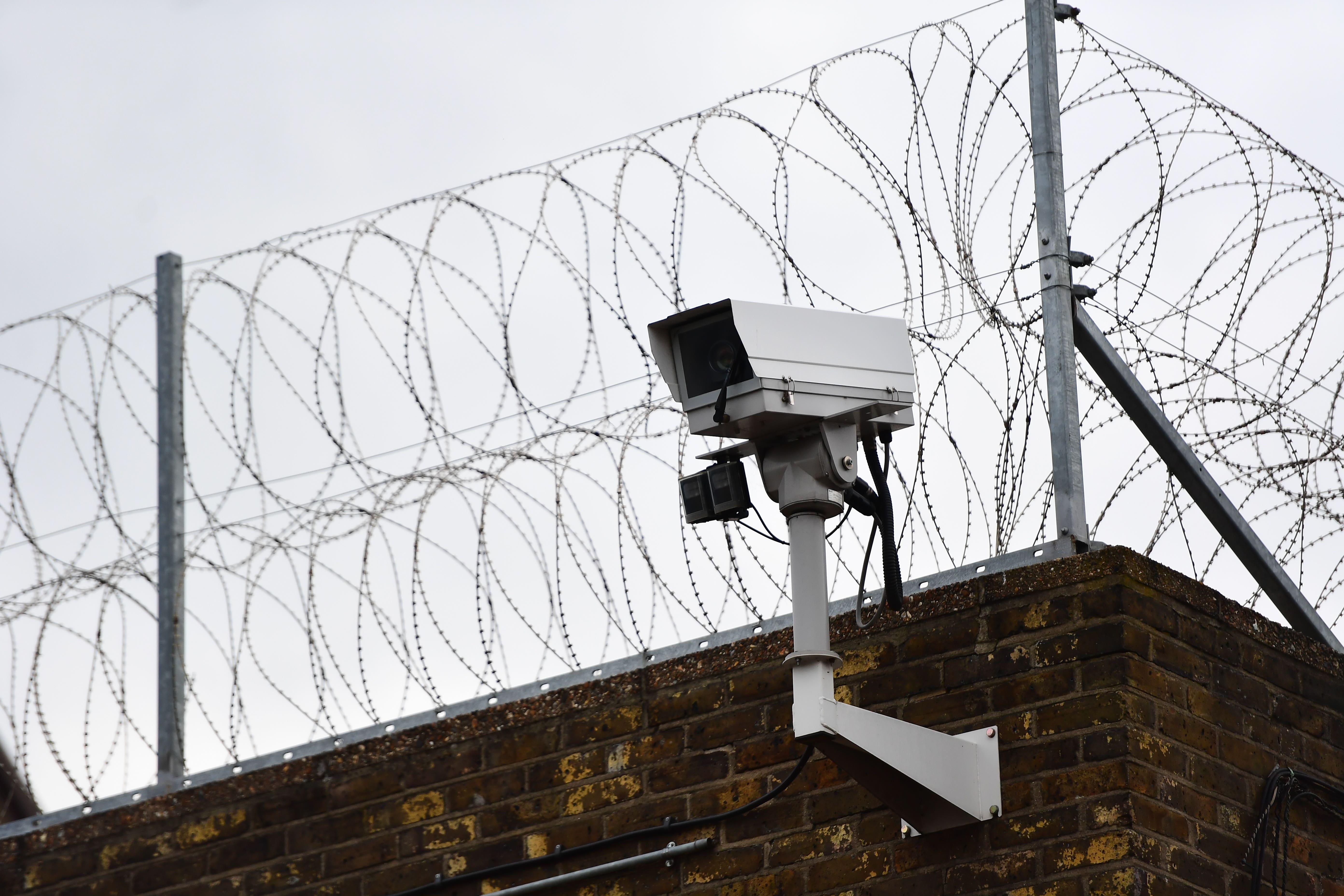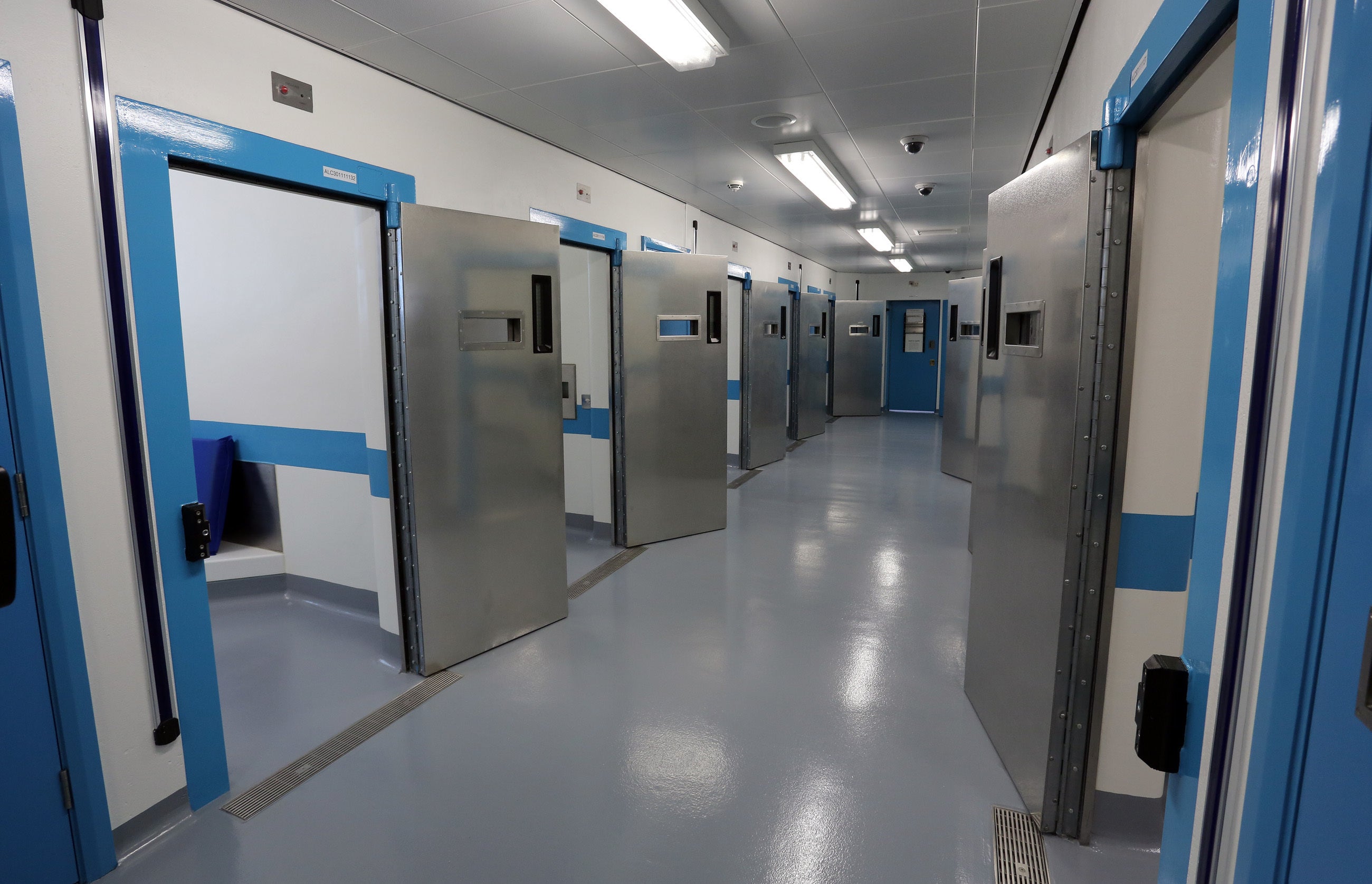UK prisons near capacity triggering emergency plan to use 400 police cells
Justice minister says contingency plan not used since 2008 will ensure ‘smooth running of the prison estate’

Hundreds of police cells will be used to house prisoners in England and Wales because jails are too full, the government has announced.
Justice minister Damian Hinds said an emergency contingency plan called Operation Safeguard had been triggered on Wednesday because of an “acute and sudden increase in the prison population”.
He told the House of Commons: “I’m announcing today that we’ve written to the National Police Chiefs Council to request the temporary use of up to 400 police cells through an established protocol known as Operation Safeguard.
“This will provide the immediate additional capacity we need in the coming weeks to ensure the smooth running of the prison estate, and to continue taking dangerous criminals off the streets.”
Mr Hinds said the increase was partly caused by a rise in the number of inmates being held before trial or sentencing, which he blamed on a barristers’ strike that disrupted cases through the summer.
“With court hearings resuming we are seeing a surge in offenders coming through the criminal justice system, placing capacity pressure on adult male prisons in particular,” he added.
Kirsty Brimelow KC, chair of the Criminal Bar Association, said the number of prisoners on remand was already at a 14-year high before barristers started industrial action over government rates for defending people who cannot afford representation.
“Barristers’ action was taken as a last resort to prevent the complete collapse of the criminal justice system and force urgent increased pay into legal aid,” she added.
A spokesman for the CBA said the surging prison population backlogs had been caused by government funding cuts to the criminal justice system.
As of 25 November, there were 82,839 inmates in prisons across England and Wales, compared to 79,685 at the same point in 2021.
During the same period, prison officers have been leaving their jobs at an increasing rate, amid concerns about the experience levels of those left in post.
The government has passed a raft of legislation increasing the length of prison sentences for different types of crime in recent years, and changing release provisions so that a greater proportion of sentences must be served inside jail.

Steve Reed MP, Labour’s shadow justice secretary, said: “Despite reports of rape and sexual offences hitting record highs, the Conservatives cut more than 10,000 prison places since 2010, while the justice secretary is more interested in the fight to save his job than the fight against crime.”
The Prison Officers' Association called the announcement a “fiasco”, with general secretary Steve Gillan adding: “Cuts have consequences. The government reaps what it sows.”
The Prison Reform Trust warned that the rate of growth in the number of prisoners suggested the extraordinary measures would only provide temporary relief in the system.
Director Peter Dawson said: “It’s a short term fix to a completely avoidable, long-term problem.
“Despite all the evidence to the contrary, politicians continue to claim that harsher sentences and more prisons make us safer. But all they achieve is overcrowded, poorly maintained jails where people are locked behind a cell door for hours on end. Even if more prison cells were available, there aren’t the staff to use them.”
Mr Dawson said the UK has one of the highest rates of imprisonment in Europe and accused the government of an “obsession with punishment rather than prevention”.
Operation Safeguard was previously triggered between January 2007 and October 2008, and between October and December 2006 before that.
The plan was created by the Home Office under the government of Labour prime minister Tony Blair as a result of pressure caused by a large volume of people being jailed.

It operates under the Imprisonment (Temporary Provisions) Act 1980, which allows prisoners remanded or sentenced to prison by the courts to be held in police cells.
The national police lead for custody, Deputy Chief Constable Nev Kemp, said: “Policing will continue to conduct its operational business, arrest criminals, and secure them in custody, with well-established plans in place for prisoners to be placed in neighbouring force custody suites should the need arise.
“We are working closely with the Ministry of Justice and HMPPS to ensure that arrangements are as safe and efficient as possible for the duration of Operation Safeguard.”
The Ministry of Justice said police cells would be used for as short a time as possible, and in a “planned and safe way”.
The government has committed to creating 20,000 more places and the new Serco-run jail HMP Fosse Way is due to open next spring.
A spokesperson added: “Keeping the public safe and cutting crime by taking dangerous criminals off the streets remains our number one priority.
“We are experiencing an unprecedented increase in the number of offenders coming into prisons in the north of England, partly as a result of the impact of the pandemic and the barrister strike action over the summer months.
“The public would rightly expect us to take the action necessary to create the extra spaces we need, and so we are working with the police to use a small number of cells in the short term so we can continue to put offenders behind bars.”
Join our commenting forum
Join thought-provoking conversations, follow other Independent readers and see their replies
Comments


Bookmark popover
Removed from bookmarks